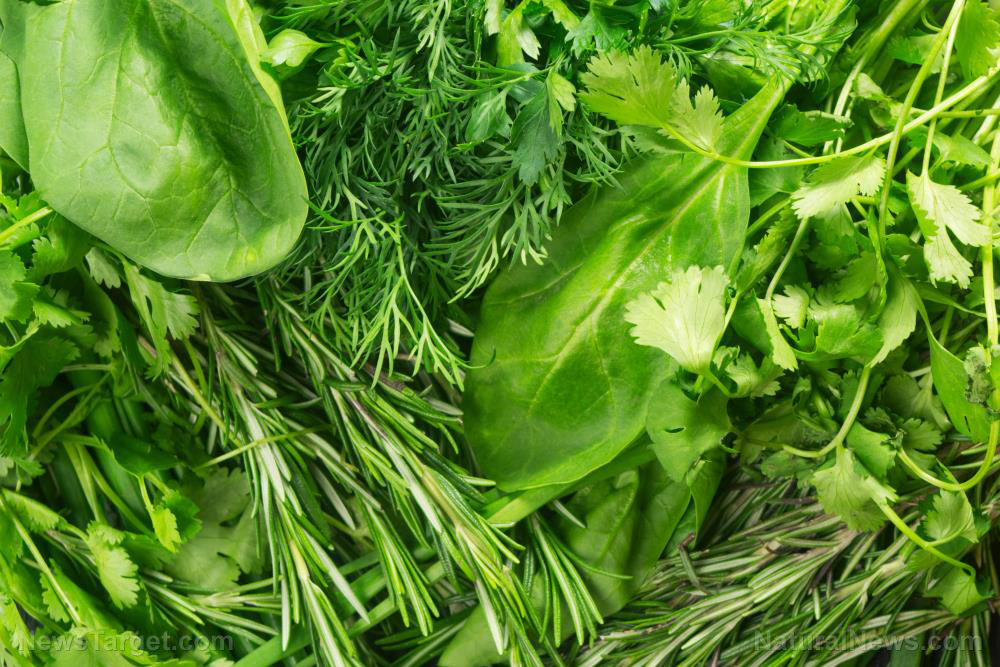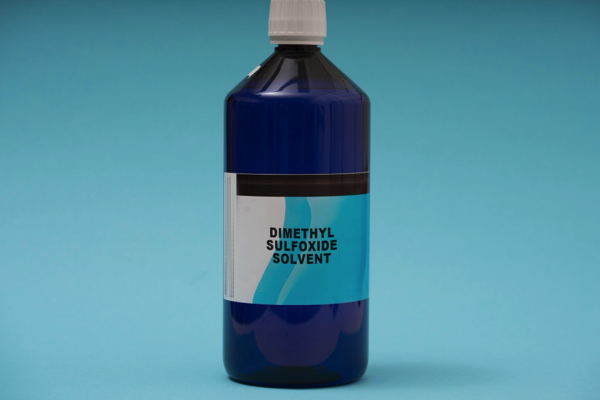Starting a home apothecary? Fight bloating, blood sugar spikes and brain fog with these beginner herbs
06/04/2025 / By Lance D Johnson

- Turmeric reduces inflammation and boosts brain health, with studies linking it to lower risks of Alzheimer’s and arthritis.
- Ginger fights nausea, lowers blood sugar and eases menstrual pain — proven by clinical trials.
- Cinnamon improves blood sugar control, especially for those with diabetes or pre-diabetes.
- Peppermint oil and activated charcoal offer natural relief for bloating and digestive discomfort.
- Rosemary and brahmi enhance memory and cognitive function.
For centuries, cultures worldwide have relied on herbs and spices not just for flavor but as powerful medicine. While Big Pharma pushes synthetic drugs with harmful side effects, nature provides safer, time-tested solutions. Modern research now confirms what ancient healers knew: spices like turmeric, ginger and cinnamon can combat bloating, stabilize blood sugar and sharpen the mind — without the toxic side effects of pharmaceuticals. If you’re looking to start a home apothecary, here are a few herbs and spices to stockpile and use. They help with brain fog, inflammation, blood sugar spikes, and bloating – common issues we all face.
Turmeric: The golden anti-inflammatory warrior
Turmeric, revered for centuries in Ayurvedic and Traditional Chinese Medicine, stands as a powerful natural remedy, thanks to its star compound, curcumin. This bioactive substance not only combats inflammation by inhibiting COX-2 enzymes (similar to NSAIDs like ibuprofen) but also neutralizes free radicals, protecting cells from oxidative damage. Clinical studies highlight its remarkable benefits: reducing osteoarthritis pain by 63%, lowering inflammatory markers like C-reactive protein, and even slowing Alzheimer’s progression by clearing amyloid plaques.
Despite its proven efficacy, modern medicine often overlooks turmeric in favor of synthetic drugs, prioritizing profit over accessible healing. The spice’s bioavailability is a hurdle — curcumin is poorly absorbed alone. However, pairing it with black pepper (piperine) boosts absorption by 2,000%, making it far more effective. Turmeric also synergizes with healthy fats (like coconut oil) and cruciferous vegetables (e.g., broccoli) to amplify its cancer-fighting properties.
Ginger: Nature’s nausea fighter
Ginger has been used for millennia to settle stomachs, from seasickness to chemotherapy-induced nausea. A 2024 study found that just 1.2g of dried ginger daily reduced vomiting in chemo patients better than a placebo. Beyond digestion, ginger lowers fasting blood sugar, making it a crucial ally against diabetes — a condition worsened by processed foods and Big Agra’s sugar-laden products. Unlike synthetic metformin, which can cause digestive distress, ginger works with the body, not against it.
Cinnamon: The blood sugar stabilizer
Most cinnamon sold in stores is cassia, which contains coumarin, a liver toxin in high doses. But Ceylon cinnamon — the real deal — helps regulate blood sugar without the risks. A 2024 study found that 4g daily improved glucose control in pre-diabetics. Yet, the processed food industry floods shelves with sugary snacks, ensuring a steady stream of diabetic customers. Cinnamon disrupts this cycle naturally.
Cinnamon, fenugreek and bitter melon have long been used in Ayurveda and Traditional Chinese Medicine to stabilize glucose levels. Research shows cinnamon mimics insulin, improving cellular sugar uptake, while fenugreek slows carbohydrate absorption.
The gut-healing power of peppermint and charcoal
Bloating, often dismissed as a minor inconvenience, can signal deeper digestive dysfunction. Peppermint oil, a staple in traditional European and Middle Eastern Medicine, relaxes intestinal muscles, easing cramping and gas. Meanwhile, activated charcoal — used for millennia by Indigenous cultures — binds to toxins and excess gas, providing near-instant relief. Unlike over-the-counter antacids, which mask symptoms, these remedies address the root causes.
Improving cognition
Rosemary (Rosmarinus officinalis)
- Benefits: Enhances memory, focus and acetylcholine levels.
- Mechanism: Contains carnosic acid and rosmarinic acid, which inhibit acetylcholinesterase (prevents breakdown of acetylcholine).
- Historical use: Ancient Greeks wore rosemary wreaths during exams for mental clarity.
2. Brahmi (Bacopa monnieri)
- Benefits: Boosts memory, learning, and reduces anxiety.
- Mechanism: Increases synaptic communication, reduces oxidative stress, and supports neuron repair.
- Historical use: Ayurvedic “brain tonic” used for centuries to enhance cognition.
3. Ginkgo biloba
- Benefits: Improves blood flow to the brain, enhances memory and slows cognitive decline.
- Mechanism: Acts as a vasodilator and antioxidant, protecting neurons from damage.
- Historical use: Traditional Chinese Medicine staple for mental clarity.
4. Lion’s mane mushroom (Hericium erinaceus)
- Benefits: Stimulates nerve growth factor (NGF), aiding neurogenesis and memory.
- Mechanism: Contains hericenones and erinacines, which promote brain cell regeneration.
- Historical use: Used in Eastern Medicine for cognitive longevity.
5. Gotu kola (Centella asiatica)
- Benefits: Enhances focus, reduces mental fatigue, and supports brain circulation.
- Mechanism: Increases BDNF (brain-derived neurotrophic factor) and antioxidant activity.
- Historical use: Ayurvedic “herb of enlightenment” for sharpening intellect.
As the medical establishment scrambles to discredit natural remedies, one truth remains: The earth’s oldest medicines are also its most resilient. If you’re starting a home apothecary, start with simple herbs that can improve your focus and memory while providing anti-inflammatory benefits. Other great options improve blood sugar levels (cinnamon), reduce inflammation (turmeric) and help with bloating (peppermint) and intestinal discomfort (activated charcoal). These are just the beginning. A world of healing awaits!
Sources include:
Submit a correction >>
Tagged Under:
Activated Charcoal, anti-inflammatory, antioxidants, Ayurveda, Big Pharma, bloating, blood sugar, brahmi, cinnamon, cognitive function, diabetes, food as medicine, ginger, gut health, herbal remedies, holistic health, IBS, memory, mental clarity, natural medicine, nausea, Peppermint Oil, pre-diabetes, Rosemary, turmeric
This article may contain statements that reflect the opinion of the author





















